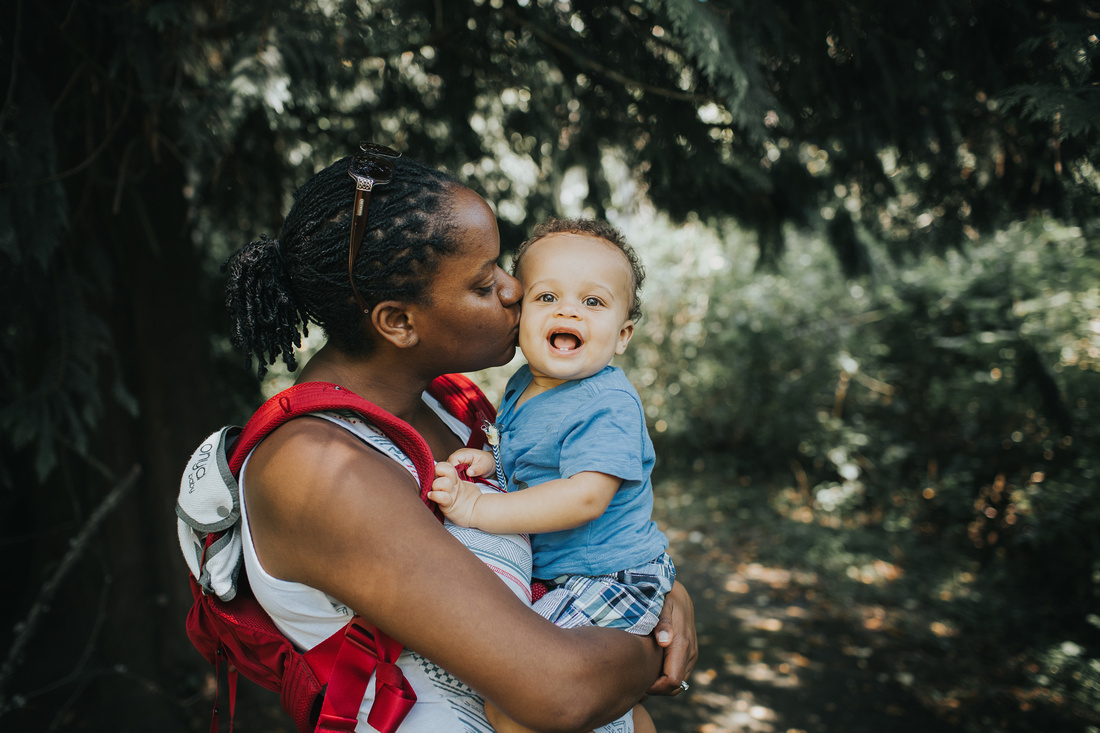When a baby enters the picture, new parents often have a lot of fears and questions about hiking. What kind of gear do you need? How long a trip should you plan? What if you drive to the trailhead and the baby starts wailing uncontrollably when you put him or her in the carrier? But above all, the first question I often get—as the founder of Hike it Baby and someone who has logged hundreds of hikes with a baby, then toddler, over the last four years—is a simple one: How old should my baby be before I start hiking with her or him?
My answer: Whenever you’re ready, your baby will be ready.
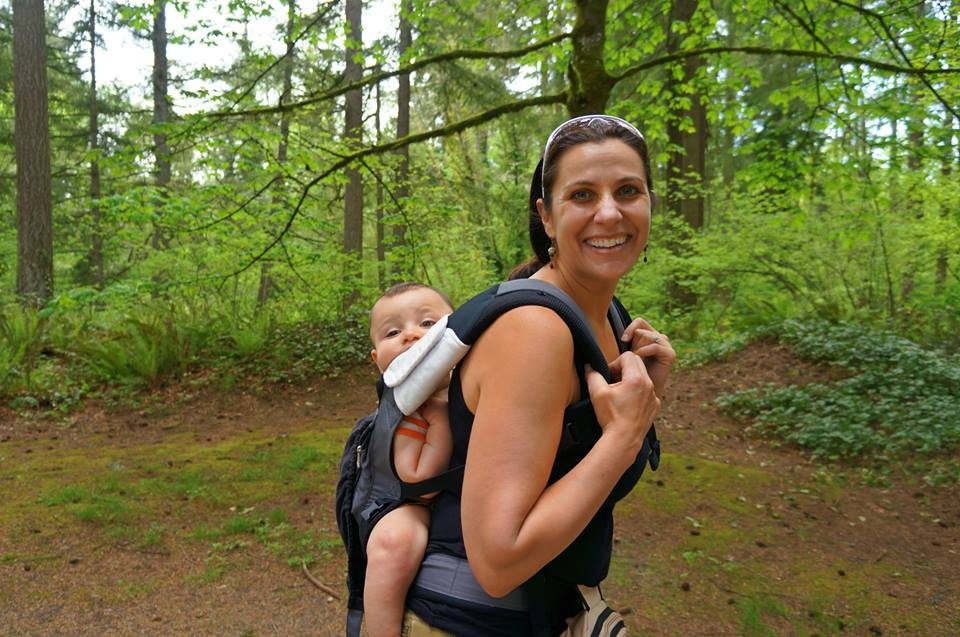
Photo Courtesy: Shanti Hodges
The first time I hiked on my own with my son, Mason, he was just a few weeks old. I went down the street to a trail near my house in Oregon. As I attempted to put on the carrier, I tried to act nonchalant, like I did this all the time. But I stumbled and fumbled trying to attach the back buckle. Finally, I gave up and asked a passing couple if they could help. They obliged and with a sigh of relief, I was off. Ten minutes later, Mason was wailing in a tone that was definitely an “I’m hungry” cry. I felt panicky and didn’t know how I was going to unbuckle the carrier without dropping Mason.
Luckily, a few minutes later, I passed by the same couple, who had stopped to sit on a bench. Again, I asked for their help. “I so remember doing this. Good for you for getting out here,” the woman said to me. I breathed a sigh of relief as I sat down on a tree stump to nurse. I was a little embarrassed, because until then, I had only nursed at home—another excuse I had made for not hiking. As Mason quieted down, I realized this was going to be my new normal, and I just had to go for it or I would never leave my house.
Here are some beginning steps I always share with new parents:
1. Start small. There’s no need to head out for an epic adventure with a young baby or toddler. Pick nearby trails you can access easily and are comfortable with for your first trips.
2. Don’t go for elevation right away. Although babies can adjust to high elevation, until you know how your baby will react, it’s better to move up to higher elevations slowly.
3. Carriers matter. Before your first outing, test your carrier and know how to adjust it. Bringing a frame pack you just picked up at a yard sale and trying to throw your kiddo in it probably won’t go well. If your baby isn’t comfortable, you could be stuck with screaming for much of the hike. Make sure her or his legs aren’t dangling in the wind in a frame carrier and that they are sitting upright, not tilted to the side. Infants should be tight up against your body if in a soft carrier. In a frame pack, make sure they aren’t wobbling around and the harness is adjusted tight. Some carriers have a special insert for younger babies.
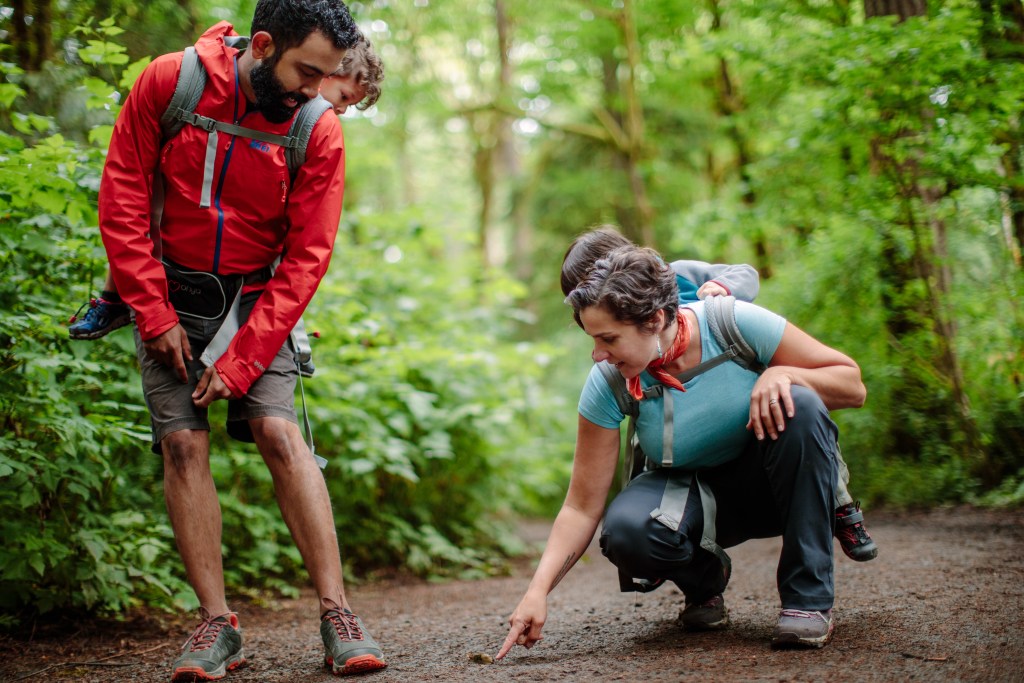
Photo Credit: Michelle Pearl Gee
4. Go as a family or with a friend when you start. It’ll be much easier to power through the baby crying and adjust to a carrier if you have someone to empathize with you and keep you going.
5. Bring a good amount of baby wipes. I always carry one small plastic bag with at least 10 wipes on a two-hour hike. These will come in handy whether you’re dealing with spit up, dirty hands or an unexpected diaper change. I replenish my stock before every hike.
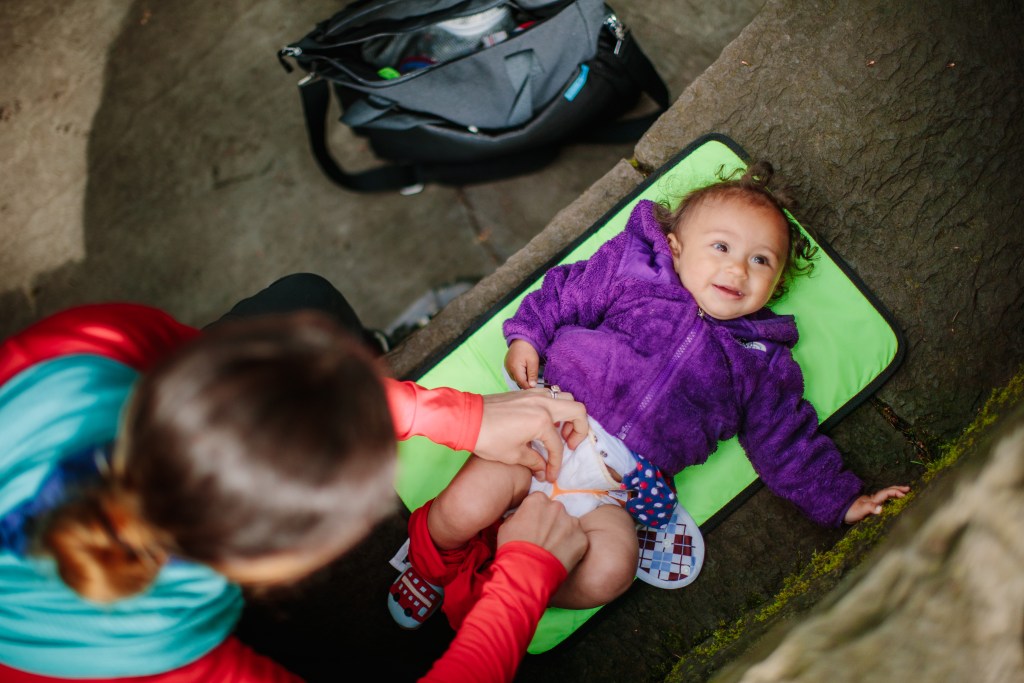
Photo Credit: Michelle Pearl Gee
6. Toys or pacifiers are great to bring along. But make sure you have a tether for it (yes, these exist). A lost pacifier on the trail can be traumatic for you and the baby.
7. Pack light, but don’t forget the necessities, like a lightweight rain jacket, an energy-boosting snack if you are nursing and water. The complaint most parents have is that carriers don’t have enough, if any, pockets. Consider a small fanny pack or lightweight backpack (what I use) carried on your front or back to bring things.
8. Don’t forget a small first-aid kit for little cuts that can happen on the trail from pricklers and branches. I’ve also used the kit’s sterilizing wipes on a little one’s bum when the unexpected poop happened.
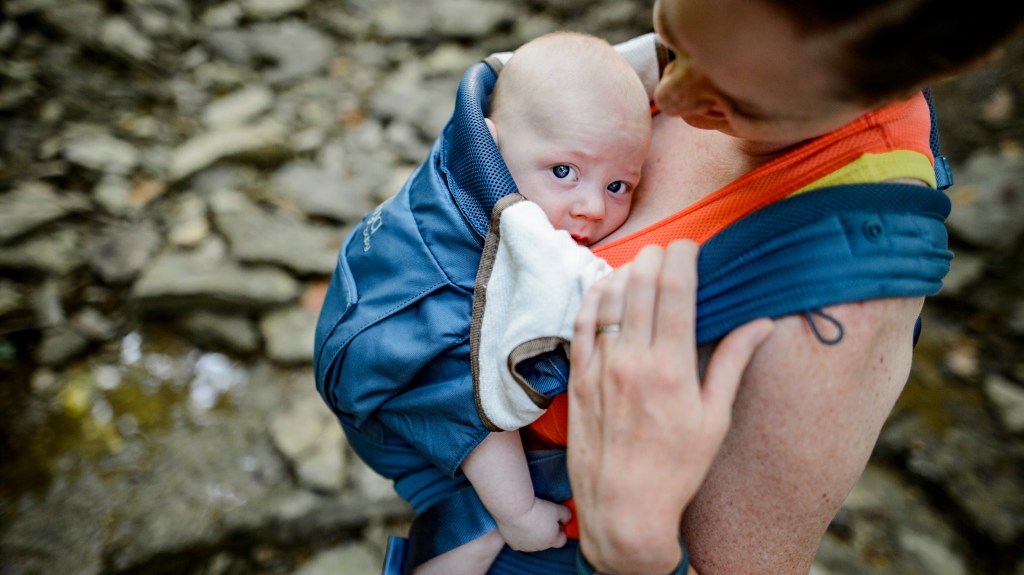
Photo Credit: Laura Castro
9. Start with trails that have some access to cell service in case of emergencies. Even if you don’t think you need the cell service, grandma and grandpa will feel happier if they know you’ve returned safely.
10. Go frequently. Many people have told me their baby cries when they get to the trail and they give up right away. Give it some time. It often takes a few hikes for some babies to adjust. Make sure your baby is warm, dry and fed, and that the carrier you are using is a good fit for his or her body.
11. Don’t get stressed about weather. Bundle up and bring backup layers for afterward. I have actually had some of my best days hiking with my son, Mason, in the rain and was pretty surprised at what a good mood it put him in. This will especially be the case when they start to stomp in mud puddles.
That said, if there is heavy weather coming in, think about hikes with shelters along the way or a nature center to duck into if it really goes bad. Also, as you’re planning your trip, watch the forecast closely so you know what to expect.
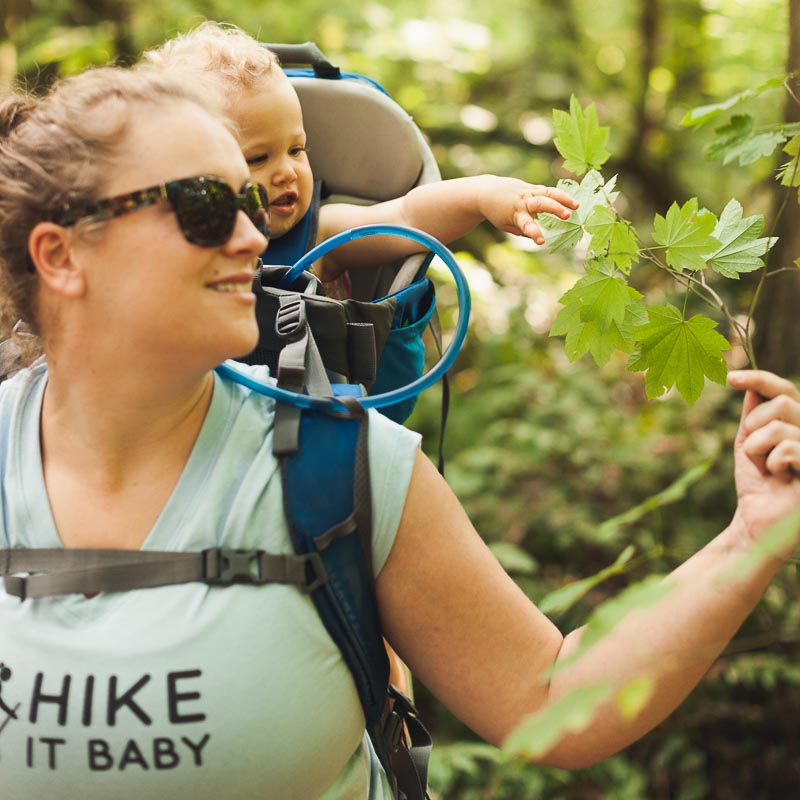
Photo Credit: Tais Kulish
12. Don’t hesitate to ask strangers for help. I know this might be hard if you are an introverted person, but I have found on the trail everyone softens when they see a baby. When I first started hiking, I always had to ask random people to buckle up the back of my carrier when I was front-carrying. They always did so with a smile and told me how great it was to see me hiking with my baby, which in turn made me feel good about getting out there.
13. Set some hiking goals. There are great online challenges to help get you out on the trail regularly, like Hike it Baby 30, 52 Hike Challenge and 365 Mile Challenge. Also, look for groups like Women Who Hike, Girls Who Hike, Adventure Mamas and more. I’ve found that even groups geared toward singles are surprisingly open to having babies there.
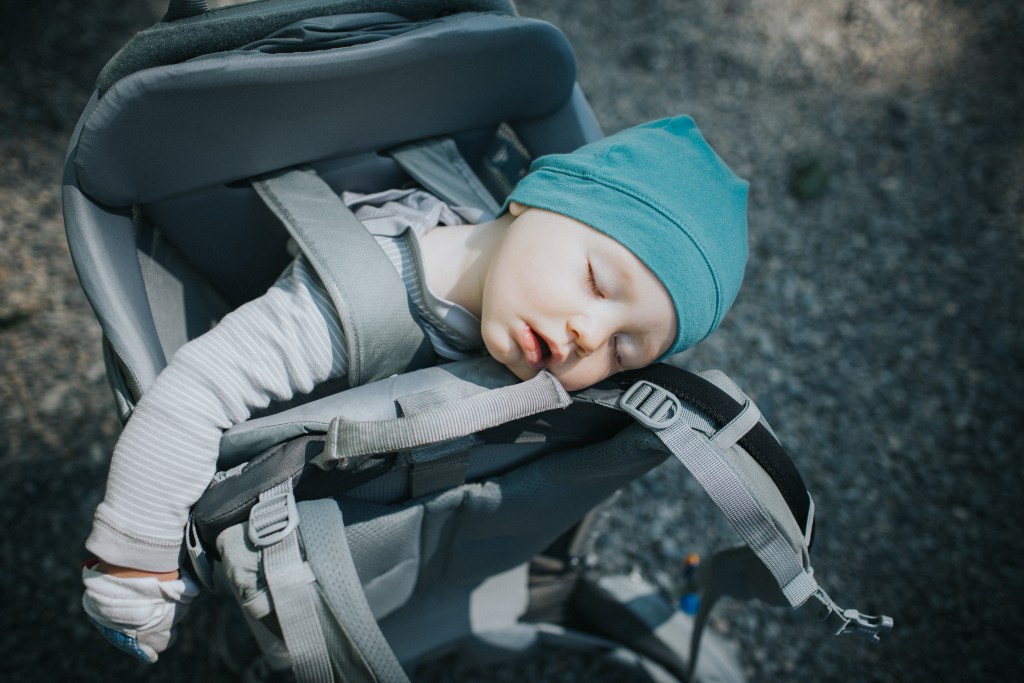
Photo Credit: Ashley D. Scheider
14. If you have a bad day with your baby, don’t let it set you back. Try again for the next day and keep on pushing through. Set a date for your next hike immediately after a bad day so you don’t delay. Or make a date with someone to meet you in a park near a trail so you still get outside time even if the trail isn’t happening. Eventually, it does get easier and before long you will be an old pro coaching your friends with new babies on how to get out there.
